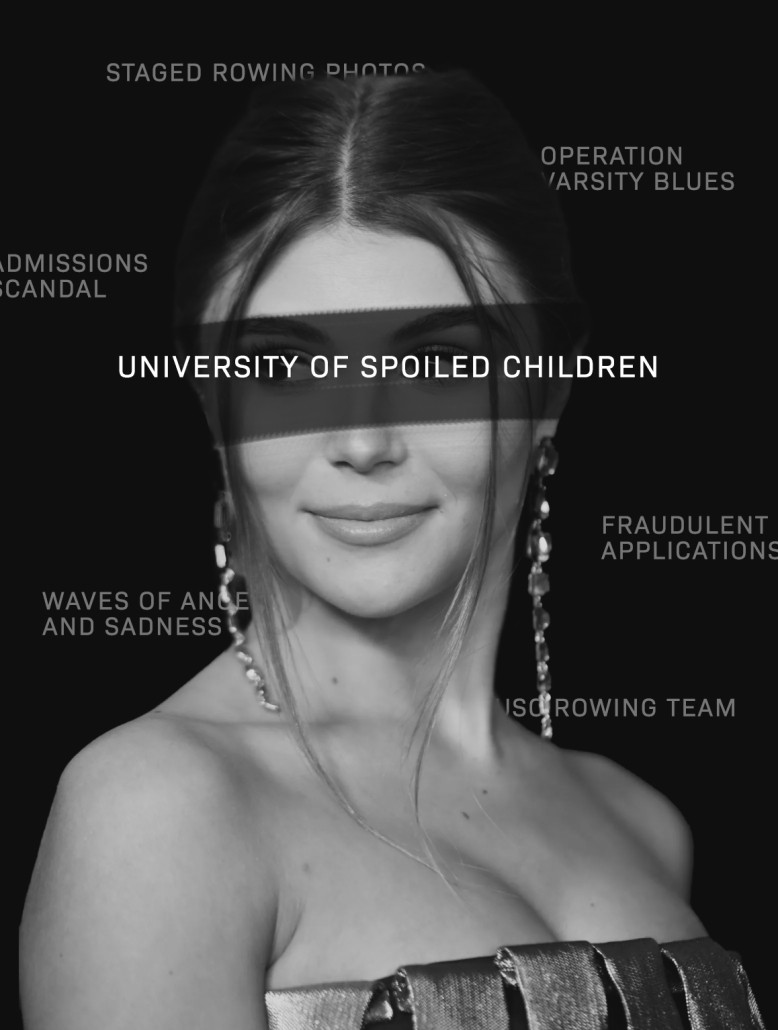Is it finally time to un-cancel Olivia Jade?
A week doesn’t go by without a person being canceled. Whether it’s an NFL coach or Jeopardy host, people are getting Etch-a-Sketched out of public life in a New York minute and presumably never heard from again, typically for a past transgression.
Cancel culture is wholly contingent on a person’s transgressions. There are the Harvey Weinsteins and Jon Grudens of the world who are beyond reproach, leaving no place for rehabilitation. In these cases, cancel culture is warranted. However, there are other instances where transgressions are more benign, leaving room for growth. To understand if cancel culture befits a particular person, one must assess the severity of the wrongdoing.
The topic of cancel culture hits particularly close to home with Olivia Jade. Her name has become part and parcel of USC culture, inducing jokes about rowing or bribing your way into school. After the 2019 Operation Varsity Blues college admissions scandal broke, various actors, media moguls and elite private schools found themselves in the crosshairs of public scrutiny. However, Olivia Jade Giannulli, better known by her YouTube handle, Olivia Jade, became the scandal’s poster child. Jade’s story underscores how cancel culture often affects people with privilege differently.
To secure Jade and her older sister admission to USC, their parents, Lori Loughlin and Mossimo Giannulli, paid $500,000 and fabricated athlete profiles of the two as rowers — hence the pervasive jokes about rowing. Before USC rebranded itself as a leading academic institution, it was generally known as a breeding ground for the wealthy, many of whom didn’t have the same academic standings as UCLA students. The scandal only compounded USC’s stigma as the “University of Spoiled Children.”
Following the college scandal, Jade promptly dropped out of USC and took a hiatus from social media, only to break her silence in December 2020 on Facebook’s “Red Table Talk.” During her media appearance, Jade said, “What’s so important to me is to now learn from the mistake, not to now be shamed, and punished, and never given a second chance. I’m 21 — I feel like I deserve a second chance, to redeem myself, to show I’ve grown. I’m not trying to victimize myself. I don’t want pity. I don’t deserve pity. We messed up. I just want a second chance to be like ‘I recognize I messed up.’”
The problem here is two-fold. Simply recognizing her faults doesn’t rectify the problem. Recognition is certainly part of growing, but the two concepts shouldn’t be conflated. It’s also problematic that she boils the issue down to a mere mess-up. This expectancy that she should be forgiven — coupled with her simplification of a much more nuanced problem — highlights her privilege.
Following the “Red Table Talk” appearance, Jade continues to dip her toes back in the water. She resurfaced on YouTube, competes on “Dancing with the Stars” and plans to release her own podcast this fall. Her experience fully epitomizes the long-standing debate about cancel culture. While we should eventually uncancel her, we cannot know she genuinely reformed unless she acknowledges her privileged experience.
It’s as if Jade was put in a proverbial timeout but, as a child of privilege, was able to literally cash in with newfound opportunities. It begs the question, would “DWTS” really have casted her had she not been enveloped in the infamous scandal? Was she given a get out of jail free card as the gilded offspring of a celebrity? By pleading ignorance to her parents’ egregious behavior, and publicly apologizing, she managed to weaponize her privilege to gain opportunities.
It’s important that we rethink cancel culture so that it allows people opportunities to rehabilitate and grow. However, as seen in the case of Olivia Jade, cancel culture affects everyone differently and people with privilege often get off scot-free. For her to grow, Jade must recognize the privilege that softened her canceling in the first place. Maybe then our culture could work toward accepting her without cracking incessant rowing team jokes.


